Daily Health Checks for Your Horse: Healthy, Happy and Thriving Horses
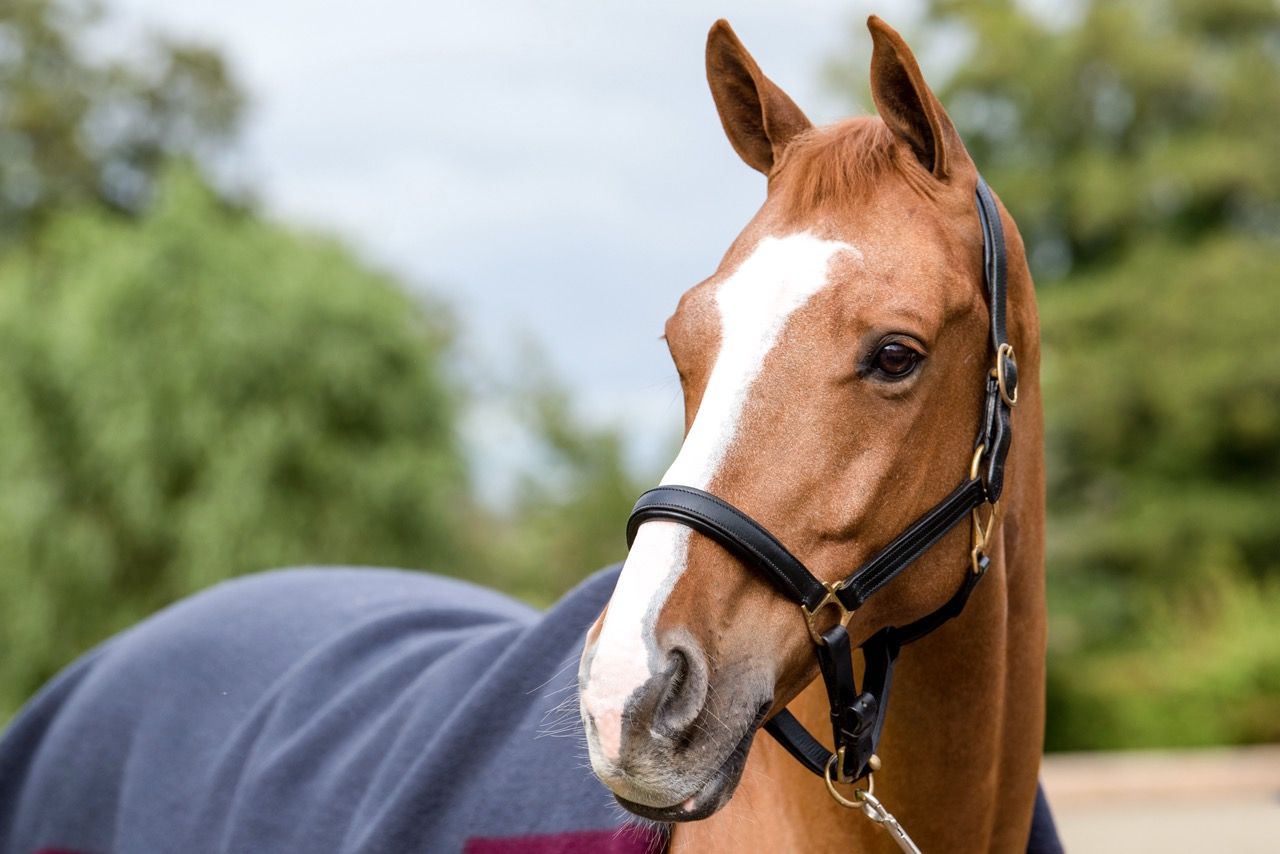
As a horse owner, ensuring your horse’s health and wellbeing is one of the most important responsibilities you have. A regular daily health check is crucial for spotting any signs of illness, injury, or discomfort early on, allowing you to take action before things escalate.
In this article, we’ll cover the essential daily health checks you should perform on your horse to help keep them healthy, happy, and feeling their best.
Why Daily Health Checks for Horses are Important
Horses can’t communicate their discomfort or illness the same way humans do, so it’s up to you as an owner to be vigilant and observant. A daily health check helps you:
- Detect signs of illness or injury early
- Ensure your horse’s comfort and safety
- Identify any changes in behavior, appetite, or physical condition
- Maintain a routine that fosters strong human-horse bonds
Routine health checks also help you stay on top of your horse’s general condition and catch potential problems before they become serious. It can be easy to overlook small changes, but consistent monitoring will help you address issues promptly.
Inspect Your Horse’s Coat, Skin, and Coat Condition
Start your daily health check by examining your horse’s coat and skin. A shiny, smooth coat is a sign of good health, while dull or patchy fur can indicate stress, poor nutrition, or illness. Pay attention to any cuts, abrasions, or signs of infection. Look for areas of swelling, heat, or discomfort that might suggest an injury or abscess. If you notice excessive itching, it could be a sign of parasites or skin conditions like hives or eczema.
What to look for:
- Shine and softness of the coat
- Cuts, abrasions, or swelling
- Signs of parasites, like hair loss or irritated skin
Check Your Horse’s Hooves
Healthy hooves are essential to a horse’s overall well-being. Hoof problems can lead to lameness, discomfort, and serious injuries. Inspect your horse’s hooves for any cracks, chips, or abscesses. Heat in the hooves can be a sign of laminitis among other things. Make sure the hooves are clean and free from stones or debris that could cause discomfort. If your horse is shod, check the shoes for any damage or loose nails.
What to look for:
- Clean, debris-free hooves
- Cracks, chips, or damage to the hooves
- Healthy frog and sole
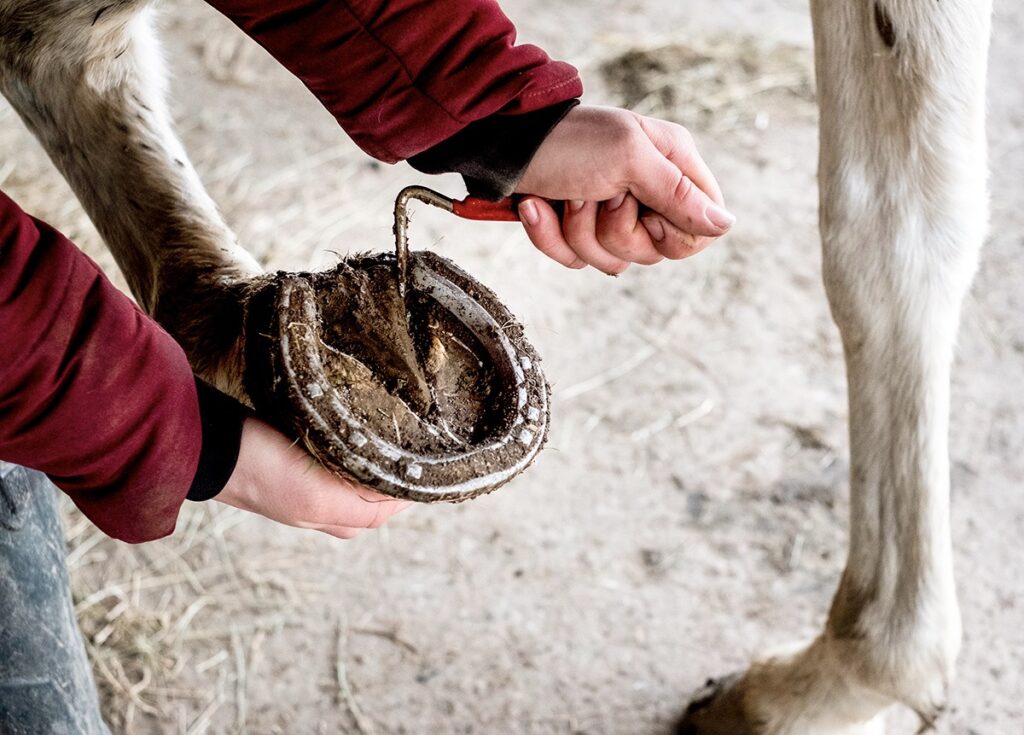
Examine Your Horse’s Eyes and Ears
Your horse’s eyes should be clear, bright, and free from discharge. Cloudiness, squinting, or excessive tearing can indicate eye infections, allergies, or other issues. Additionally, check for any swelling around the eyes. Similarly, assess your horse’s ears for any signs of infection, excessive dirt, or injury. Horses are very sensitive to ear issues, so being proactive in this area is vital.
What to look for:
- Bright, clear eyes without excessive discharge
- Healthy, clean ears with no signs of infection or injury
- Absence of squinting or excessive tearing
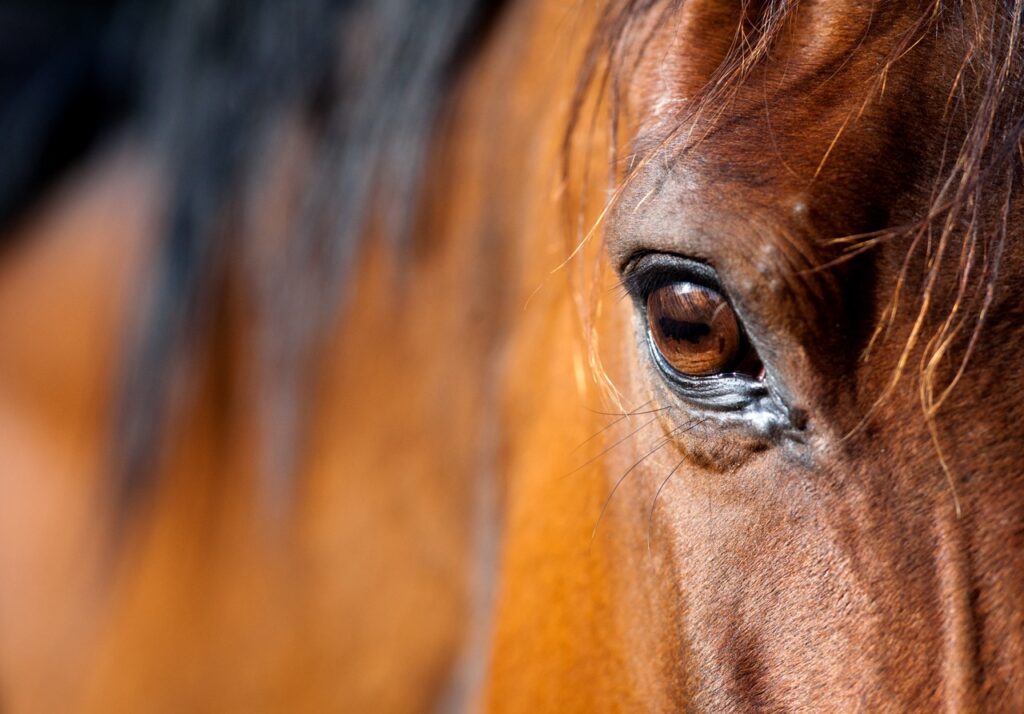
Monitor Your Horse’s Breathing and Heart Rate
Your horse’s breathing and heart rate should be steady and consistent when at rest. Check your horse’s respiration rate by watching their flank rise and fall for 60 seconds, counting the breaths. The normal rate for a resting adult horse is around 8 to 16 breaths per minute. Similarly, check their heart rate by placing your hand on the side of their chest or using a stethoscope. A normal resting heart rate is between 28 to 44 beats per minute.
What to look for:
- Regular, steady breathing (8-16 breaths per minute)
- Healthy heart rate (28-44 beats per minute)
- No signs of labored breathing or excessive heart rate
Assess Your Horse’s Appetite and Drinking Habits
A horse’s appetite and drinking habits can reveal a lot about their health. A horse that suddenly loses interest in food or water could be experiencing discomfort, illness, or stress. Ensure your horse is eating their usual amount of hay or feed and drinking a healthy amount of water. Keep an eye on their fecal output as well; any changes in consistency, color, or frequency could indicate digestive issues.
What to look for:
- Consistent appetite and water intake (not drinking enough increases the risk of colic)
- Normal droppings (well-formed and regular)
- Any changes in feeding or drinking habits
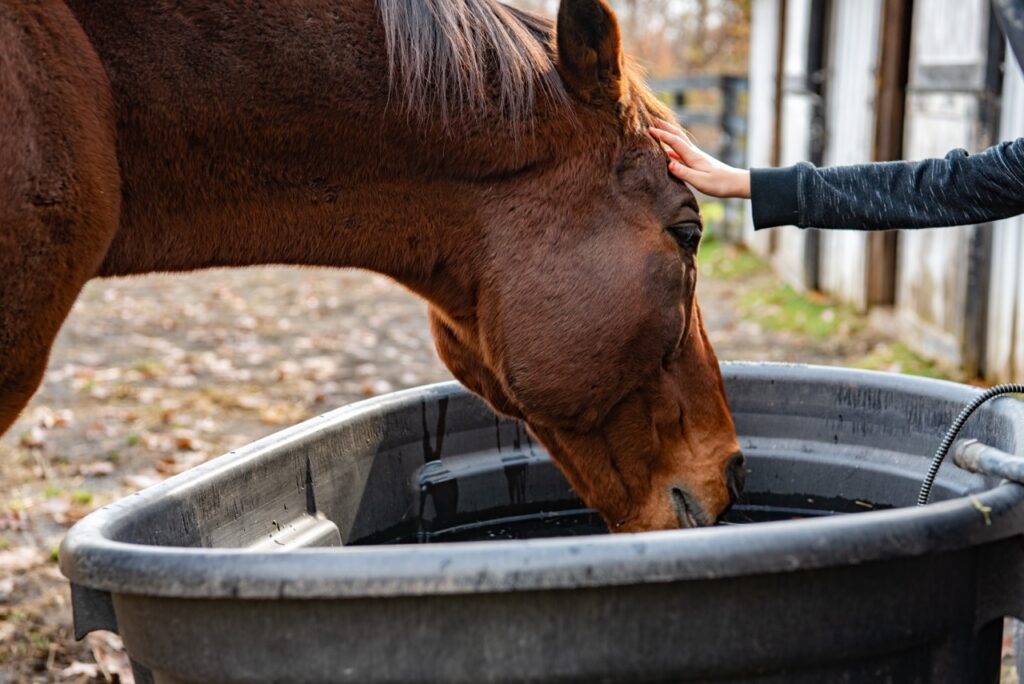
Check for Lameness or Stiffness
Lameness or stiffness is often one of the first signs of injury or discomfort in horses. Walk your horse in a straight line and observe their gait carefully. Look for any signs of limping, uneven strides, or reluctance to move. If you notice any lameness, it could be a sign of hoof problems, joint issues, or soft tissue injuries.
What to look for:
- Smooth, even gait
- No signs of limping or stiffness
- Willingness to move freely
Watch for Behavioral Changes
Behavior is one of the most sensitive indicators of a horse’s health. Horses are creatures of habit, so any changes in their behavior should not be overlooked. A normally calm horse that becomes suddenly agitated, withdrawn, or unusually lethargic may be signaling an issue. Monitor for signs of discomfort, pain, or stress, and consult a veterinarian if behavior changes persist. Stress and non-regular foraging can increase the chance of your horse getting gastric ulcers among other things.
What to look for:
- Normal behavior and temperament
- Lack of interaction or excessive agitation
- Signs of stress, discomfort, or pain
Regular Grooming and Bonding Time
While grooming may seem like a luxury, it’s an essential part of your horse’s health check. Regular grooming not only keeps your horse clean but also gives you a chance to bond and inspect them for any abnormalities. Grooming can help detect cuts, bruises, or hidden injuries that might not be immediately noticeable. It’s also an opportunity to check for parasites, particularly in the mane, tail, and coat.
What to look for:
- Regular grooming to maintain coat health
- Signs of injury, irritation, or parasites
- Bonding time to keep your horse relaxed and comfortable
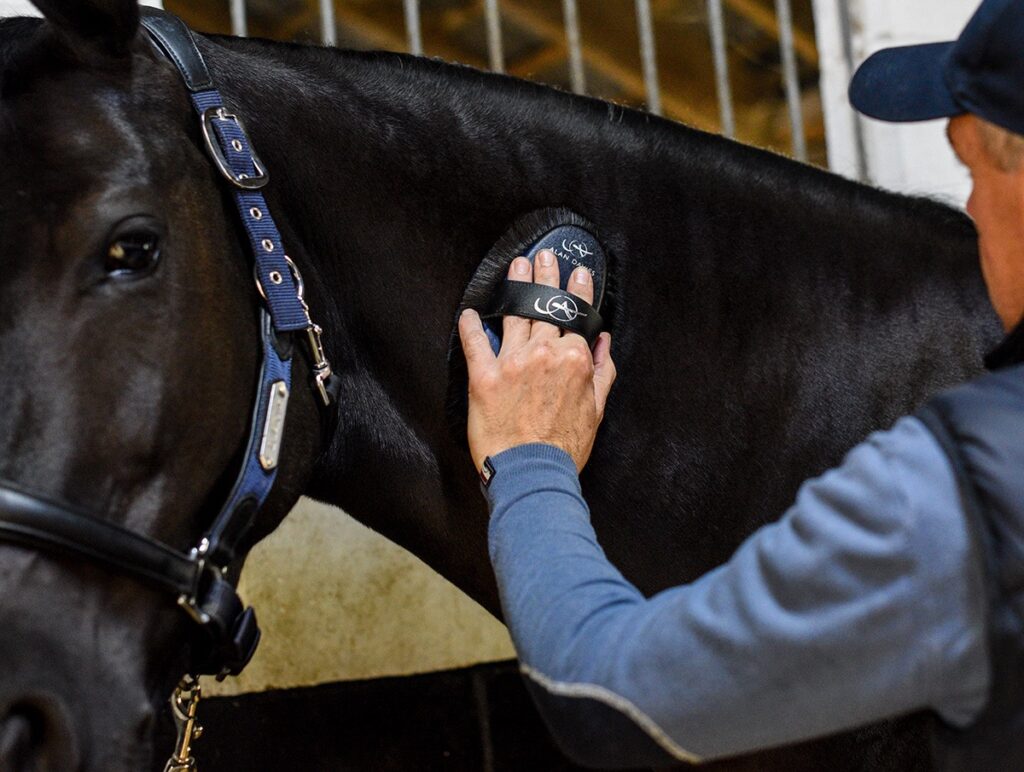
Make Daily Health Checks a Priority ⚠️
Performing daily health checks on your horse is essential to ensuring they remain healthy, happy, and comfortable. By carefully monitoring their coat, hooves, eyes, breathing, and behavior, you can catch potential issues early and prevent more serious health problems down the road. A routine health check is not only good for your horse’s physical well-being but also strengthens the bond between you and your equine companion.
Stay vigilant, and make daily health checks a part of your horse care routine to keep your horse in peak condition. Regular monitoring will give you peace of mind and help you address any health concerns before they become significant problems. The Ridely app can help you keep track of your horse’s health condition by logging any inconsistencies in the calendar.
Remember, when in doubt, always consult with a veterinarian for a professional opinion and treatment.

Get the best grooming tips from Alan Davies
Carl Hester’s previous groom Alan Davies has a whole series of grooming videos in Ridely.
Take part of his many tips to give your horse the shine they deserve.
Do you want more educational content?
Check out our video library with over 500 videos with equestrian professionals all over the world!


